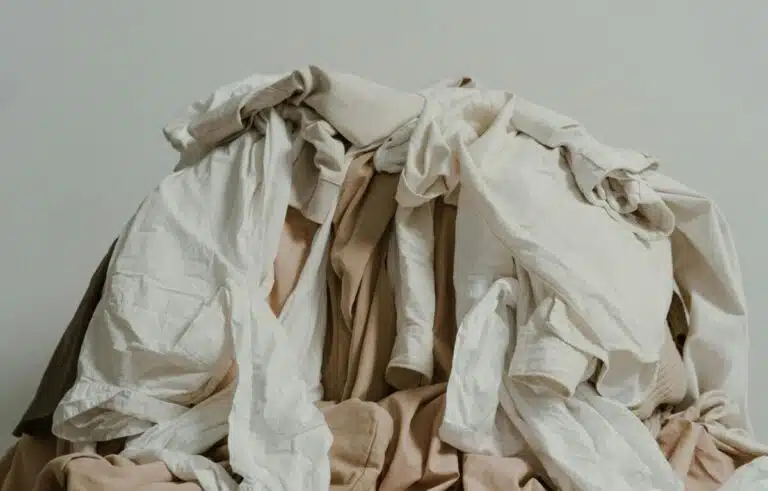M&S partners with Oxfam to trial recycling donated unwearable clothes

From today (22 April), consumers will be able to recycle clothing – both wearable and unwearable – from home by ordering a pre-paid postal donation bag from the Oxfam website.
The bag, made from 100% recycled plastic, allows clothing to be separated into two groups: good quality and wearable, and unwearable but too good to waste. It can be returned for free via a local courier with the clothing then going directly to Oxfam to be resold, reused, or recycled. People can order a bag here.
‘Wearable’ vs ‘unwearable’
New research conducted for M&S found that one in five consumers say they are confused by what is meant by ‘wearable’ and ‘unwearable’ clothing. WRAP defines wearable clothing as clean, dry, in good condition and ready to be worn by someone else. Unwearable clothing is damaged in some way – for instance torn, stained, faded, or stretched. Clothes which are soiled or contaminated are not recyclable and customers are asked not to include these items. To help, M&S has worked with Oxfam to create a ‘how-to’ guide, which will be enclosed in the pre-paid donation bag.
Advertisement
Trial aims
Through the trial, which is funded through M&S’ Plan A Accelerator Fund, M&S wants to find new ways to reduce textile waste and increase the use of recycled fibres to drive the circular economy – a key part of the retailer’s Plan A sustainability plan.
Katharine Beacham, Head of Materials, Sustainability and Packaging at M&S, commented:
“At M&S, we’re focused on making good quality, durable products which are made to last. In 2008, we launched Shwopping to support customers to give a second home to their preloved clothing, and we’re now expanding our partnership with Oxfam to trial a free postal service which enables customers to clear out their pre-loved clothing that they no longer need. Whether it is wearable or unwearable – we want it all!”
Lorna Fallon, Trading Director at Oxfam, said:
“We are so excited to be working with M&S as part of this brand-new trial. As well as continuing to encourage customers to donate their preloved, wearable clothing to Oxfam and help raise vital funds to tackle poverty around the world, this trial allows us to give unwearable clothes a second chance of life too. By recirculating our clothes, buying, and wearing second hand, we can help to reduce the demand for new clothes, which could in turn help to reduce the damage to our planet. So, by learning more about the potential of all our clothes and textiles, we can help improve the lifecycle of all of our clothing for the better.”
The trial forms part of the ‘ACT Project’ which is being led by the UK Fashion and Textile Association (UKFT). The UKFT is working to develop a new framework towards a UK-based automated-sorting and pre-processing facility (ATSP) that will recycle clothing unsuitable for re-sale to make new clothing which can be sold in the UK to create a completely circular system.
Adam Mansell, CEO at UKFT, commented:
“We’re delighted to be working with Marks & Spencer and Oxfam to give old clothing a second chance at life. We need to ACT now to tackle the staggering amount of textile waste that ends up in landfill or incinerated each year. Through this trial, we’re aiming to encourage people to separate their items so that in future, worn-out clothing can make its way to an automated sorting facility and then be recycled into new textiles and garments here in the UK.”
Consumers can use the service to donate any item of preloved clothing from any retailer, as well as soft furnishings textile waste such as bed linen, towels, cushions, tablecloths, and tea towels. M&S’ in-store Shwopping scheme is for wearable, hand-me-down quality clothing only.



